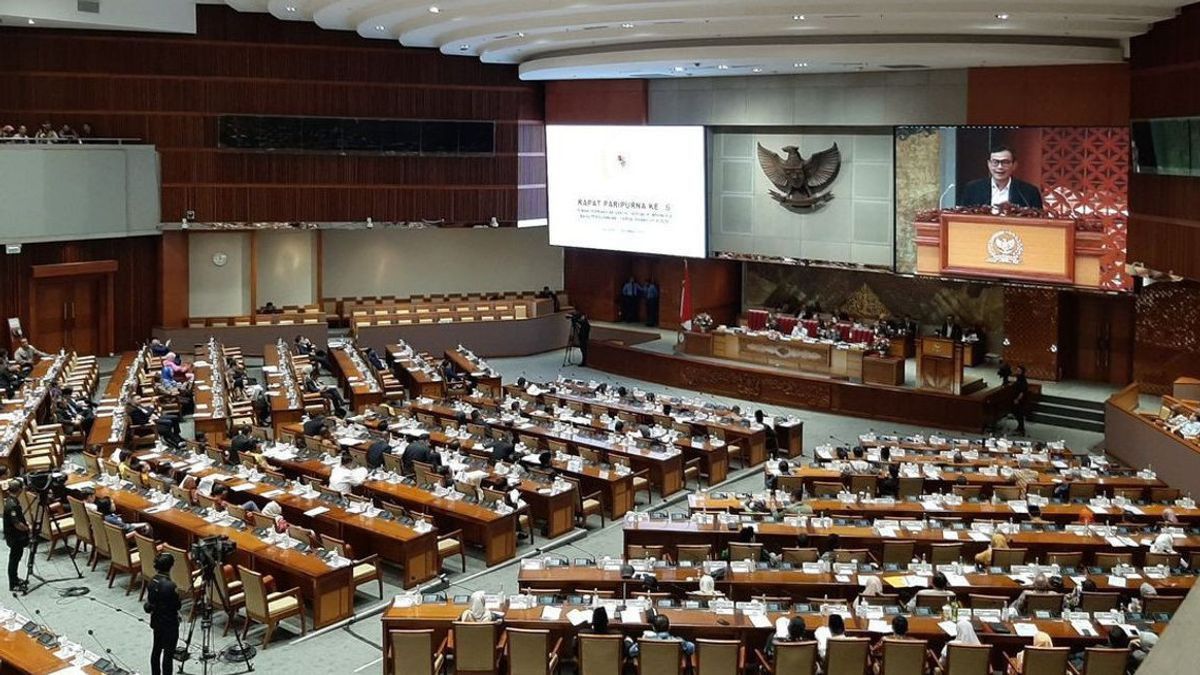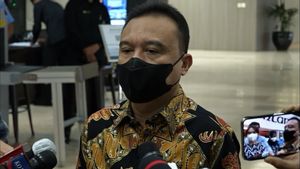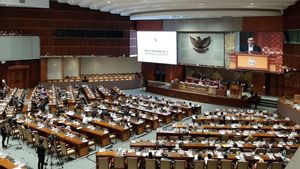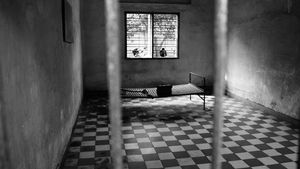JAKARTA - Commission III of the DPR said that the Draft Law (RUU) on the Confiscation of Criminal Assets needs to be immediately discussed and ratified. With this regulation, hopefully there will be a deterrent effect for perpetrators of legal crimes, especially in terms of economic crimes.
The government through President Joko Widodo has sent a presidential letter (Surpres) regarding the Asset Confiscation Bill on May 4. Currently, the draft bill will only be brought to the deliberative body (Bamus) before it is read out at the DPR Plenary Meeting.
The eradication of economic crimes including corruption, drugs, taxation, criminal acts in the financial sector, and others is not entirely successful. Prevention and prosecution still do not show a significant and adequate deterrent effect," said Member of Commission III of the DPR RI, Didik Mukrianto, Monday 22 May.
"Ideally, confiscation of assets resulting from criminal acts can be a deterrent effect for perpetrators in economic crimes. Considering that not a few, assets resulting from criminal acts can still be enjoyed by the perpetrators even though they have served their sentence," he continued.
Didik gave an example when law enforcement officials exposed the crime of money laundering. In practice, the Government is still constrained by the less progressive laws and regulations regarding the confiscation of assets suspected of being the result of a criminal act.
"Recovery of state losses or social-economic losses from a number of economic crimes is still not optimal and has still not been able to assist in the complete return of state finances," said Didik.
The DPR is said to support the confiscation of assets belonging to criminals, especially for perpetrators who deliberately hide money from their crimes through certain methods. Moreover, conveyed by Didik, economic crimes always develop along with the advancement of information and technology.
"This economic crime is increasingly sophisticated or can be said to be a sophisticated crime," he explained.
"Crimes committed through various financial engineering and legal engineering methods with the aim of being able to trick law enforcement officials, complicate the legal process in court, and complicate the confiscation process carried out conventionally," added Didik
He added that the Criminal Asset Confiscation Bill is expected to be a comprehensive solution in dealing with the problem of criminal assets that are constrained. According to Didik, so far there have been many obstacles that make it difficult for law enforcers to deal with the condition of the suspect or defendant.
"For example, the suspect/defendant died, fled, was permanently ill, or his whereabouts were unknown," explained the legislator from the East Java IX electoral district.
另请阅读:
The Asset Confiscation Bill is a Government initiative bill. There are a number of things regulated in this bill, including the rules for criminal assets that can be confiscated by the state, namely assets with a minimum value of IDR 100 million.
In addition, assets that can be confiscated are assets related to criminal acts whose imprisonment is up to four years or more. Then, assets that are suspected of being used to commit crimes.
The assets that can be confiscated next are other legal assets belonging to the perpetrators of the crime as a substitute for assets that have been declared confiscated by the state, and assets which are items of findings that are suspected to have come from criminal acts.
The state can also seize assets that are not balanced with income or sources of additional wealth that cannot be proven the origin of their acquisition legally and allegedly related to criminal assets obtained since the enactment of this law.
Furthermore, confiscated object assets obtained from the proceeds of a criminal act or used to commit a crime can also be confiscated.
Didik also assessed that the Bill on Asset Confiscation could formally answer public expectations regarding the eradication of economic crimes. Starting from drug crimes, taxation, terrorism, criminal acts in the financial sector, and others.
The Asset Confiscation Bill is considered far more important and fair than carrying out the construction of the death penalty for criminals.
"In one perspective, it can be said that the confiscation of assets resulting from criminal acts is far more important and fair than constructing the death penalty," explained Didik.
Furthermore, the Asset Confiscation Bill is said to be proof of the DPR's commitment to the Government in terms of law enforcement. Through this bill, said Didik, state policy makers can convince the public that the assets of criminals will certainly be confiscated by the state.
"We all hope that the Criminal Asset Confiscation Bill can be a breakthrough in efforts to eradicate and reduce the number of economic crimes in its entirety for the realization of a sense of public justice," he said.
There are four states of confiscation of assets that can be carried out. First, the suspect or defendant died, fled, was permanently ill, or his whereabouts were unknown. Second, the defendant was terminated from all lawsuits.
Then the third condition is when the criminal case cannot be tried. Fourth, the defendant has been found guilty by the court who has obtained permanent legal force, and in the future it is known that there are assets of criminal acts that have not been confiscated.
Didik fully supports that the Criminal Asset Confiscation Bill can be immediately discussed and promulgated.
"So that the confiscation of assets can be carried out against the proceeds of crime without any obstacles to the inadequate procedural law," said Didik.
The English, Chinese, Japanese, Arabic, and French versions are automatically generated by the AI. So there may still be inaccuracies in translating, please always see Indonesian as our main language. (system supported by DigitalSiber.id)

















